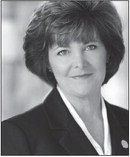Legislature eyeing teacher salaries

Legislature eyeing teacher salaries
The legislature is charged with studying the state's educational system to determine how it can offer an adequate education to all Arkansas public school students. The study requires the Education Committees to review the system every year and report their findings and recommendations.
To accomplish this, members spend a great deal of time researching student growth, transportation needs, and cost of living. This week the Education Committee devoted their attention to the salary of teachers in our state.
A recent report from the Organization for Economic Co-operation and Development (OECD) found that students are more likely to be low-performers if they attend schools that struggle with shortages and low teacher morale.
Although salaries are not the only factor in employee morale, we know it can play a role.
During the 2015-2016 school year Arkansas teachers made an average salary of $48,220 a year.
The average teacher salary in Arkansas ranks third among 7 surrounding states. In Texas the average teacher salary is $51,758/year. In Mississippi the average salary is $42,744.
We rank 11 when compared to the other 16 other states included in the Southern Regional Education Board.
The legislature increased the minimum teacher salary in the 2015 Regular Session. The minimum salary for teachers in our state went from $29,444 to $30,122. It will increase to $31,000 for the upcoming school year. However, individual school district can raise their minimum pay for their teachers. Some districts begin as high as $44,000 a year.
In order to put a teacher’s salary in context, members of the Education Committee are provided with average salaries of several other professions.
Computer programmers in Arkansas make an average of $75,170 a year. Loan officers, insurance underwriters, accountants, and librarians all make a higher average salary than teachers in our state. Professions such as licensed practical nurses, social workers, and interior designers typically make less than school teachers.
Committee members are also looking at student proficiency rates at every district to see how they correlate if at all with teacher pay.
The Education Committee will meet again in July to continue its adequacy study. The final recommendation for per student funding, including any possible increases to pay for our teachers, will be given to legislators before we convene for the 2017 Regular Session in January.

From State Representative Deborah Ferguson


Share